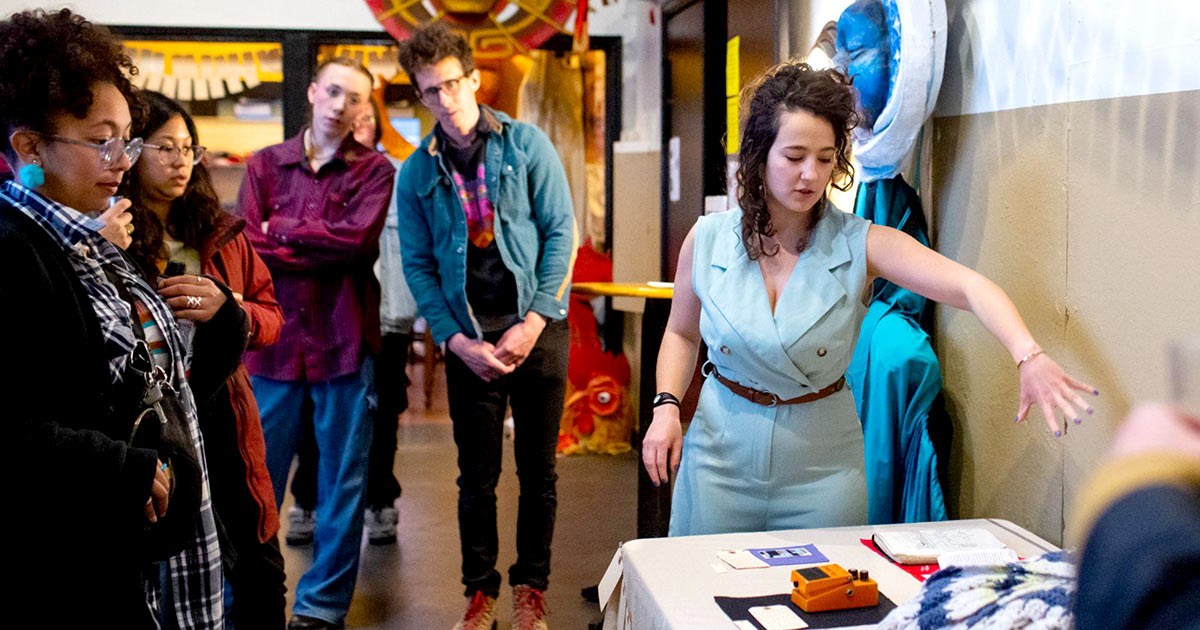
April 12–28, 2025
Being Human Festival (US)
In partnership with humanists and humanities organizations across the country, the National Humanities Center is supporting 19 public events across the US.
These community-focused events, organized and presented by local artists, scholars, and educators, highlight the incredible breadth of the humanities and demonstrate how they add depth and meaning to our lives, help us understand ourselves and one another, and provide context for the complex world around us.
The American edition of the Being Human Festival, begun in 2024, is the latest international expansion of the Being Human effort, launched in the United Kingdom in 2014. Previous festival events have taken place in France, Italy, Romania, and Singapore. In 2017, a sister festival was established in Melbourne, Australia.

2025 Being Human Festival (US) Events
Cane Hill and Dutch Mills, Arkansas
History Passport: Reconnecting German Settlers and their Arkansas Neighbors
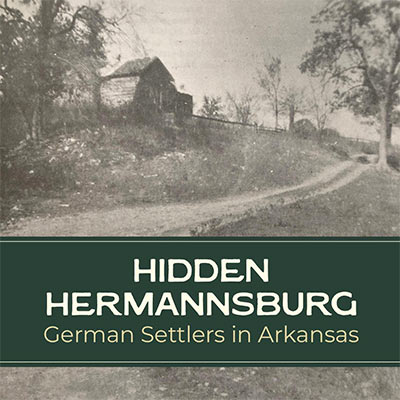
Saturday, April 19, 1–4 p.m. | Organizer: Historic Cane Hill and the University of Arkansas at Fayetteville
The story of Hermannsburg is a poignant example of the immigrant experience in nineteenth-century Arkansas. Having fled war-torn Germany in 1850, brothers Johann and Karl Hermann built a thriving community over twelve years, only to see it destroyed by the Civil War. On December 21, 1862, as widespread fighting left the region in ruins, the Hermann families joined a Union supply convoy, abandoning their once-prosperous home. The history of Hermannsburg, now Dutch Mills, is largely forgotten, but this program will reconnect the community with its German heritage. Attendees will experience the rich legacy of German settlers in northwest Arkansas through banjo music, readings from family diaries, language learning activities, and hands-on experiences with German settler skills.
Los Angeles, California
What is a Landmark? Food, Storytelling, Music and Cartonera Construction with the Cartonera Santanera Collective
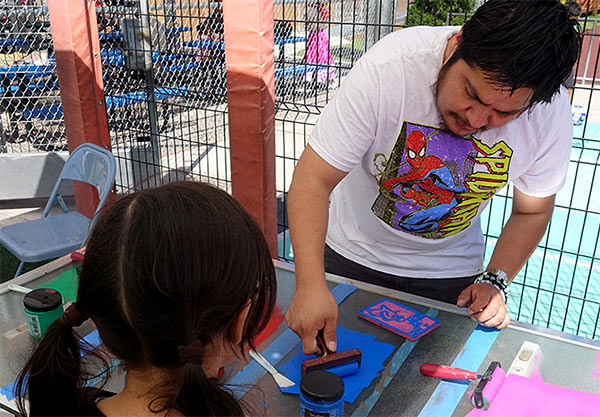
Saturday, April 26 | Organizer: Fowler Museum of UCLA
Cartonera are small-run publications of poetry or short prose with covers that are hand painted (or collaged) on salvaged cardboard. In anticipation of the upcoming “Construction, Occupation” exhibition opening in early May, the Fowler Museum of UCLA is hosting an afternoon of Brazilian food, cartonera construction, music, and storytelling. At the end of the workshop all participants will take home their finished cartonera project, a record of their own way of answering the question: “What is a landmark?”
Denver, Colorado
Denver’s Little Saigon: A Landmark History
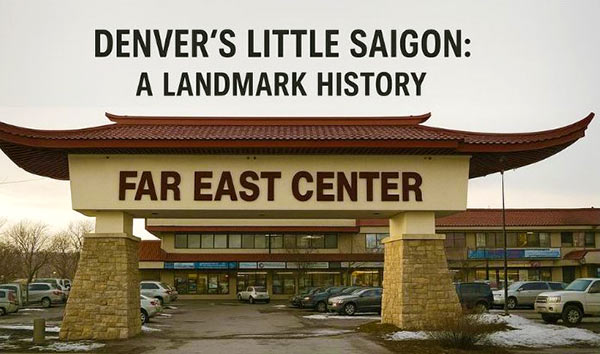
Saturday, April 26, 12:15–3 p.m. | Organizers: Regis University’s Center for the Study of War Experience; The Far East Center; Historic Denver
“Denver’s Little Saigon: A Landmark History” will feature a walking tour of Little Saigon in Denver, along with communal storytelling about the culture and cuisine of Denver’s Vietnamese community. This initiative is especially timely as April 2025 marks the fiftieth anniversary of the Fall of Saigon, an event that ended the Vietnam War and led to one of the largest refugee crises in history. The tour will provide an opportunity to explore the rich history of Vietnamese migration and contributions to Denver’s past and present.
Miami, Florida
I Am Little Haiti: A Global Borderless Caribbean Homecoming
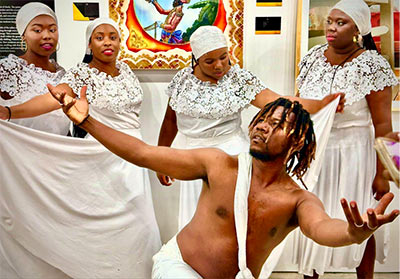
Friday, April 18: 11 a.m.–1 p.m. and Monday, April 21: 7–9 p.m. | Organizers: Wolfsonian Public Humanities Lab-Florida International University (WPHL-FIU); Iris PhotoCollective; IPC ArtSpace; iWitness: IPC Institute for Visual Journalism
“I Am Little Haiti: A Global Borderless Caribbean Homecoming” is a series of linked events within Miami’s neighborhood of Little Haiti which reminds us of the centrality of place to immigrant communities, even as these communities are being displaced by forces including climate change, deportation, and gentrification. This mini festival comprises many diverse events–including film, performance, literature, visual story(re)telling, and conversations. “I Am Little Haiti” reminds us of the power of humanity to create and re-create a connection to place, to home, and to keep alive the spirit of the ancestors and the creativity of the Global Borderless Caribbean, from shore to shore.
St. Petersburg, Florida
Echoes of the Land: Hurricanes, History, and Storytelling
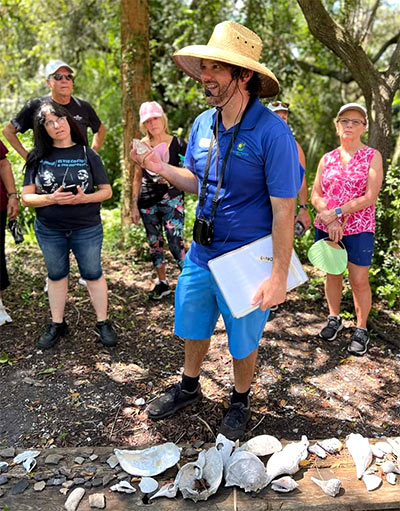
Saturday, April 26: First Tour, 4:30–5:30 p.m.; Program, 5:30–6:30 p.m.; Second Tour, 6:30–7:30 p.m. | Organizers: Florida Humanities; Sacred Lands Preservation and Education; Heritage Village
Florida Humanities and Sacred Lands Preservation and Education are hosting “Echoes of the Land: Hurricanes, History, and Storytelling” which explores the ways people in the Tampa Bay region, past and present, have sought to understand and process the impact of hurricanes. Historic tours of the Tocobaga mound site will be available by registration before and after the program. Scholars and local experts will participate in a trivia-style game moderated by Dr. Dominick Tartaglia, Florida State Folklorist and Director of the Florida Folklife Program. Audience participants are encouraged to play along and answer questions that will focus on human and environmental history, hurricane preparation/knowledge, as well as folklore, Indigenous experiences, and local culture.
St. Petersburg, Florida
Poetry on the Deuces
Saturday, April 26 | Organizer: Cultured Books Literacy Foundation
“Poetry on the Deuces” is an interactive community event that connects local history, literature, and the arts. Designed to highlight the significance of Historic 22nd Street as a cultural and historical landmark in St. Petersburg’s African American community, the event invites participants to embark on a walking tour, engage in a communal reading of Dream Street by Tricia Elam Walker and Ekua Holmes, and take part in a creative workshop. Through poetry and collage art, attendees will explore how landmarks like Historic 22nd Street shape personal and communal identities.
Macon, Georgia
Ocmulgee Rising: A Celebration of Muscogee Creativity with Joy Harjo
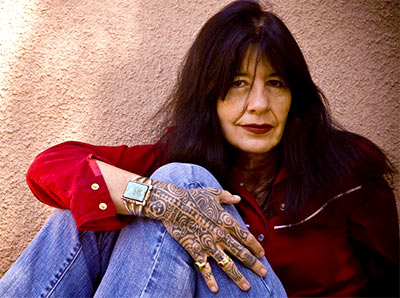
Thursday, April 24, 11 a.m. | Organizers: Georgia Humanities; Middle Georgia State University; Ocmulgee Mounds Association; Georgia Council for the Arts
Ocmulgee Mound National Historical Park, in Macon, Georgia, is a site of immense cultural and historical significance representing over 17,000 years of continuous human habitation. The site is sacred to the Muscogee (Creek) Nation, whose ancestors flourished there before their forced removal in the nineteenth century. The “Ocmulgee Rising” program, featuring America’s first Indigenous poet laureate Joy Harjo (Muscogee), will explore themes of displacement, grief, resilience, and reconciliation.
Lawrence, Kansas
Obscured Landmarks: Re-activating Buried Histories, Stewarding Sites for Learning in Lawrence, Kansas
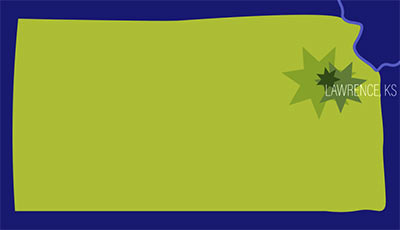
Wednesday, April 23 (evening) and Saturday, April 26 | Organizers: University of Kansas Hall Center for the Humanities; The Commons; Spencer Museum of Art; Lawrence Public Library
The “Obscured Landmarks” project will engage participants in two separate tours–an evening walking tour and an afternoon bus tour—visiting local sites associated with the prevailing narrative of Lawrence as integral to the state’s abolitionist past and legacy of rebellion against injustice. These stories will be supplemented with cultural and historical perspectives that have been unearthed by scholars and depicted by a range of artists, from storytellers to sculptors, encouraging deeper consideration of the complexity of both the human experience and how it has been documented (or not). In addition to well-known sites, participants will visit places where no markers exist; these stops will facilitate conversations to strategize ways of promoting fuller and more accurate histories of the region and the nation. Both tours will feature local historians, activists, artists, and students who uncover buried stories and confront the past in their work.
Detroit, Michigan
River People: A Being Human Festival Encounter Space on the Detroit River
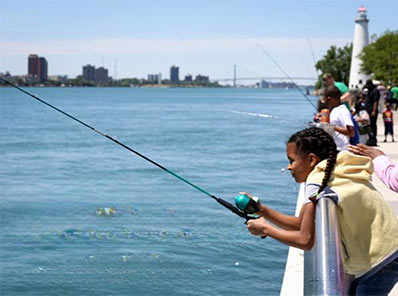
Saturday, April 12, 10 a.m.–3 p.m. | Organizers: Detroit River Story Lab at the University of Michigan, Detroit; Wayne County Port Authority
“River People” is a river-themed community storytelling event that will be held in conjunction with the Detroit River Youth Career Expo on April 12, 2025. Visitors to the event will move through a series of curated encounter spaces featuring story presentations, conversations, and hands-on activities with local historians, educators, and change-makers who share a commitment to reconnecting local communities to the river and its many-layered cultural heritage.
Detroit, Michigan
Stories of Detroit’s Crown Jewel: Different Facets of Being Human at Belle Isle Park
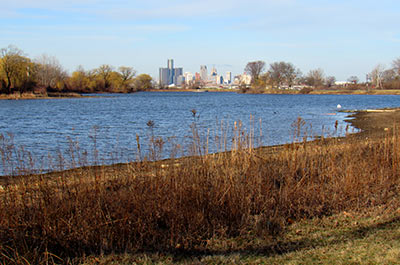
Thursday, April 24 | Organizers: Wayne State University Humanities Center; Belle Isle Conservancy; Wayne State University Department of Urban Studies and Planning
A nearly thousand-acre island in the river separating Detroit, Michigan from Windsor, Ontario, Belle Isle Park is one of Detroit’s most beloved landmarks. Over time, the park has grown and adjusted to the perceived needs of not just its citizens, but the nation. Like most parks, its features include extensive landscaping, fountains and statuary, and groves and gardens. Yet Belle Isle has also been home to local and national infrastructure (water works, a lighthouse, and a Cold War era Nike-Hercules missile site) as well as such surprising elements as a Prohibition-era speakeasy in the aquarium basement. In blending the cultural and natural, Belle Isle is an important landmark for what it means to be human. This event’s guided tour of Belle Isle will double as a community storytelling venture, eliciting the multifaceted history of this landmark from local scholars and residents alike.
Minneapolis, Minnesota
The Agency for Tiny Tourism
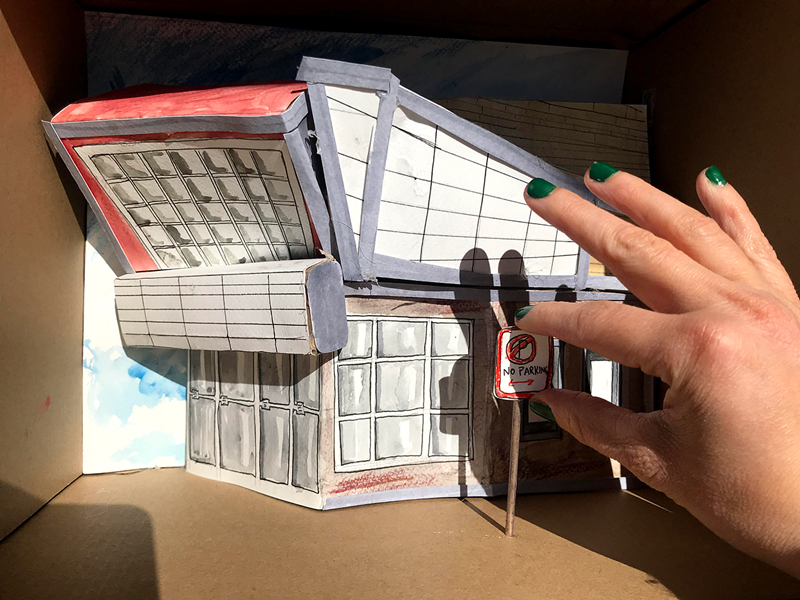
Public Diorama-Making Workshops: Thursday, April 17, 6–8:30 p.m. and Saturday, April 19, 10 a.m.–1 p.m. | Diorama Exhibition and Tours: Friday, April 25, 7–9 p.m.; Saturday, April 26, 1–5 p.m.; Sunday, April 27, 1–5 p.m. | Organizer: Felicia Cooper with In the Heart of the Beast Theater
“The Agency for Tiny Tourism” is a community-sourced tour of personally significant landmarks, culminating in a dioramic tour of these places in Minneapolis, Minnesota. With input from the community to identify several sites to recreate in miniature, this tour is a reclamation of landmarks for us all and a celebration of the holy in the mundane, recreating our favorite spaces to visit whenever we like.
St. Louis, Missouri
Landmarks of the Mind: Mapping Neurodiversity through Creative Expression
Landmarks of the Mind: Mapping Neurodiversity through Creative Expression

April 2025 | Organizer: University of Missouri–St. Louis (UMSL)
“Landmarks of the Mind: Mapping Neurodiversity Through Creative Expression” is a public humanities event exploring how neurodivergent individuals process and create meaning through art, storytelling, and cognitive mapping. With a focus on lecture-based discussions and interactive workshops, the program brings together humanities scholars, artists, and neurodivergent voices to examine how creative expression serves as a tool for navigating identity, space, and community. Participants will engage in hands-on storytelling and mapping exercises, reflecting on personal and societal “landmarks” that shape their lived experiences. This event seeks to foster dialogue and accessibility, making neurodivergence visible within the broader cultural and intellectual landscape.
Princeton, New Jersey
Centennial Landmarks of Literature and Cinema in Princeton
Thursday, April 17, 7–8:30 p.m.: “Baldwin in New Jersey” | Tuesday, April 22, 7–8 p.m.: “Raconteur Radio Presents The Great Gatsby” | Organizers: Humanities Council for Princeton, Princeton University; Princeton French Film Festival; GradFUTURES, Princeton University; Princeton Public Library; Program for Community-Engaged Scholarship (ProCES), Princeton University; Trenton Arts at Princeton (TAP), Princeton University
This collaboration between the Princeton Public Library and Princeton University brings into focus Princeton’s legacy as a center of literary and cinematic culture during the last century. Four programs put on by our organizers will explore what it means to reach the landmark of a centennial recognition. Two walking tours explore one hundred years of literature and of cinema in the Princeton area. Two special events unpack how a century of literary celebrity resonates in the present, both in the life and experience of James Baldwin and in F. Scott Fitzgerald’s most celebrated title, The Great Gatsby. These four programs investigate how, at the passing of a century, places and persons can become landmarks, and how we live our lives among them.
Cinematic Guided Tour: April 17 Baldwin in New Jersey Raconteur Radio: “The Great Gatsby” Guided Tour: “A Walk through Princeton’s Literary Century” Cinematic Guided Tour: April 25
New York, New York
The US Childhood Arrivals Mural Project
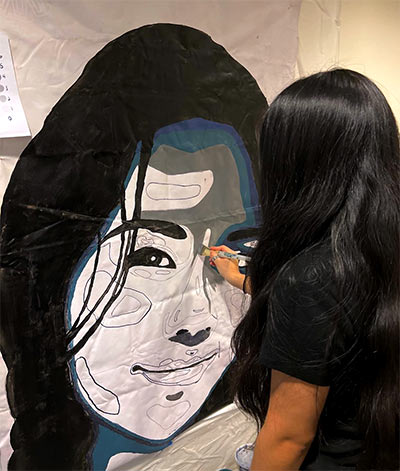
Painting dates: Monday, April 21 and April 28, 1–5 p.m. | Storyteller guest lectures: Monday, April 21; Wednesday, April 23; Monday, April 28, 2:30–3:45 p.m. | Organizers: Department of Black and Latino Studies at Baruch College; Baruch College Immigrant Student Success
This mural project in New York City will honor the stories of US childhood arrivals through a series of portraits painted by students and volunteers using a paint-by-numbers method. The painting workshops will provide an accessible and collaborative experience, allowing participants of all skill levels to contribute to the artwork. As they paint, participants will have the unique opportunity to listen to the personal stories of the individuals portrayed in the mural, deepening their connection to the project’s message. Alongside the painting sessions, storytellers from the project will host lectures, sharing their journeys and shedding light on the broader experiences of childhood arrivals in the US. Through this fusion of art and storytelling, the project will foster community engagement and celebrate the contributions of a generation of immigrants who make our communities thrive.
Utica, New York
Forest Hill Cemetery: A Landmark of Memory and Design
Saturday, April 19 | Organizer: Forest Hill Cemetery Preservation Foundation
Forest Hill Cemetery will host a public event that highlights cemeteries as cultural and ecological landmarks and centers rural voices as authors of their own histories. Local historians and preservation experts will lead walking tours for attendees of all ages, who can also peruse historical interpretation stations, contribute to art installations created by local artists, and add their voices to a digital project exploring the question “what is a landmark?”
Chapel Hill, North Carolina
Humanities Out of Doors
Thursday, April 17, 2–4 p.m.; Monday, April 28, 10 a.m.–12 p.m. | Organizers: Carolina Public Humanities; The Carolina Biodiversity Collaborative
Join humanities scholars and scientists for interactive explorations at the various intersections of science, art, literature, history, and more! These traveling conversations in North Carolinian wild spaces will reframe participants’ attention on the natural world using the tools of the humanities. During guided walks outside, scientists will spotlight the ways evolving biodiversity and human interaction in the ecology of the Piedmont region of North Carolina has affected local ecosystems. Partnering humanities scholars will highlight works of literature, history, art, or philosophy that respond to or reflect those evolutions. Program leaders will offer prompts and time for participants to explore their own creative responses to the surrounding environment.
About the National Humanities Center
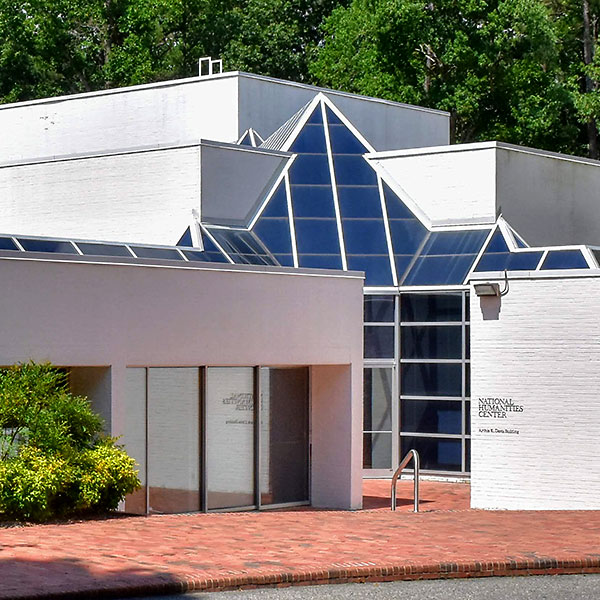
The National Humanities Center (NHC) is unique: a free standing national resource devoted to advancing significant humanistic study and reflection and to making those insights available both inside and outside the academic world. Founded in the 1970s, the NHC is a private, nonprofit and the only major independent institute for advanced study in the world dedicated to supporting excellence in humanities research and teaching.
Since its inception, over 1,500 Fellows have worked at the NHC, leading to nearly 1,800 books, and untold thousands of other scholarly works. Many of these books have been recognized with prestigious awards and helped shape thinking across academic disciplines. The Center also offers an extensive array of professional development and high quality educational resources for teachers that benefit millions of students in K–12 and college classrooms across the country. In addition, the National Humanities Center maintains a host of public engagement and advocacy efforts to highlight the significance of the humanities as the foundation of a democratic culture, a fulfilling life, and an informed citizenry.
Support the Festival
The National Humanities Center is able to accomplish its work though the generosity and dedication of individual donors, foundations, and corporations as well as a distinguished group of institutional sponsors, all of whom share our commitment to excellence in the humanities. Will you help us continue the Center’s critical work? Please consider making a gift today.
header photo by Nicole Neri